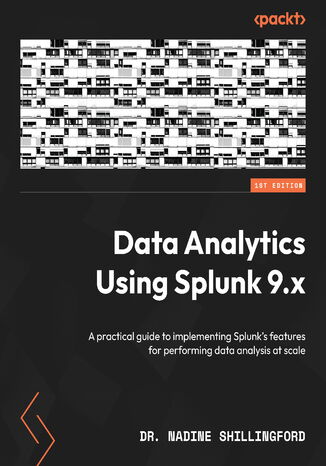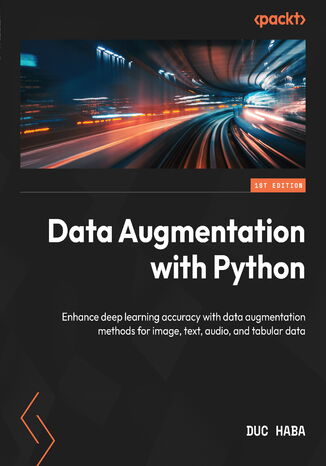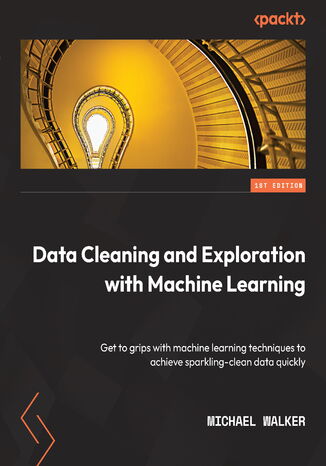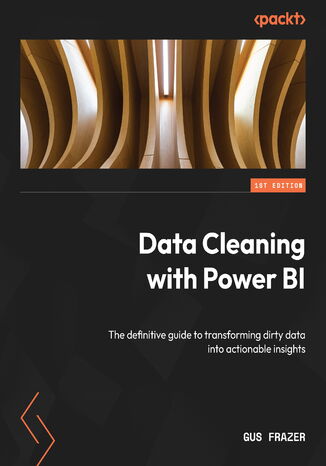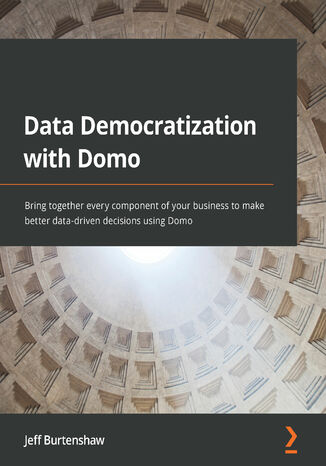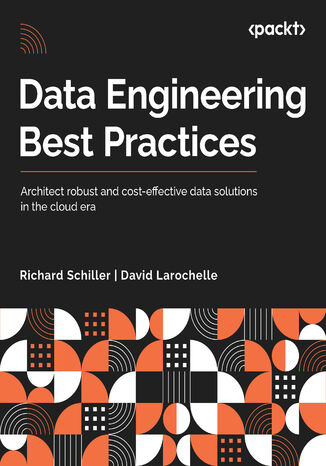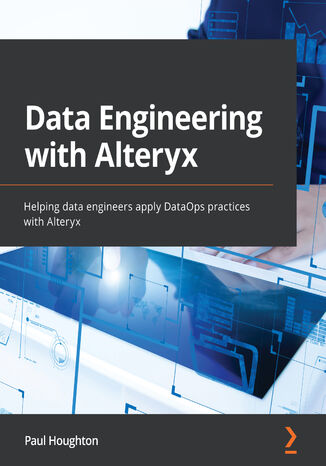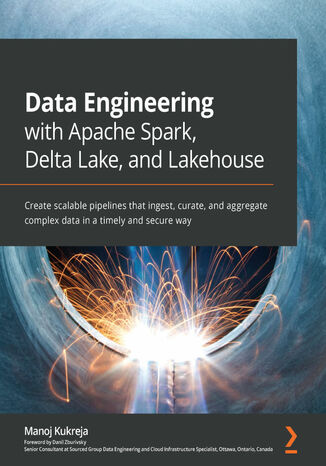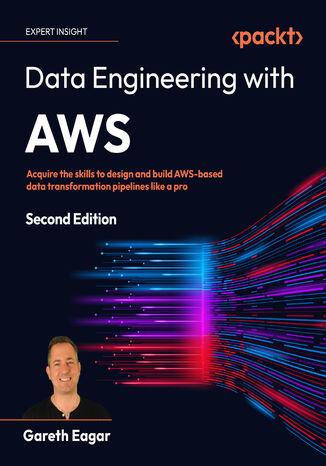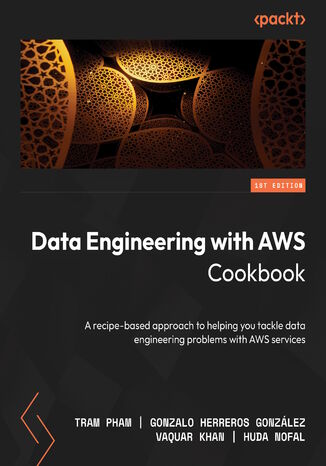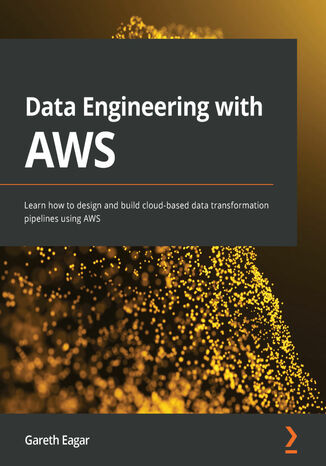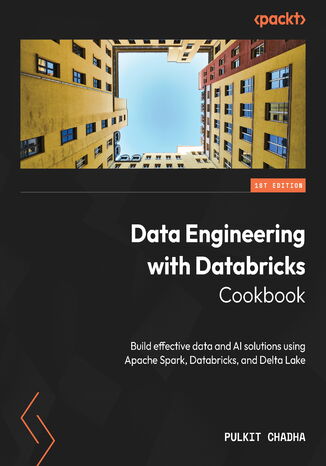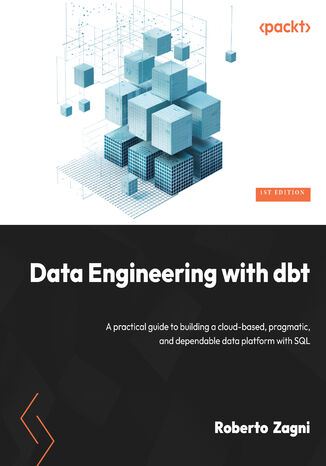Категорії
Електронні книги
-
Бізнес та економіка
- Біткойн
- Ділова жінка
- Коучинг
- Контроль
- Електронний бізнес
- Економіка
- Фінанси
- Фондова біржа та інвестиції
- Особисті компетенції
- Комп'ютер в офісі
- Комунікація та переговори
- Малий бізнес
- Маркетинг
- Мотивація
- Мультимедійне навчання
- Нерухомість
- Переконання та НЛП
- Податки
- Соціальна політика
- Порадники
- Презентації
- Лідерство
- Зв'язки з громадськістю
- Звіти, аналізи
- Секрет
- Соціальні засоби комунікації
- Продаж
- Стартап
- Ваша кар'єра
- Управління
- Управління проектами
- Людські ресурси (HR)
-
Для дітей
-
Для молоді
-
Освіта
-
Енциклопедії, словники
-
Електронна преса
- Architektura i wnętrza
- Безпека життєдіяльності
- Biznes i Ekonomia
- Будинок та сад
- Електронний бізнес
- Ekonomia i finanse
- Езотерика
- Фінанси
- Особисті фінанси
- Бізнес
- Фотографія
- Інформатика
- Відділ кадрів та оплата праці
- Для жінок
- Комп'ютери, Excel
- Бухгалтерія
- Культура та література
- Наукові та академічні
- Охорона навколишнього середовища
- Впливові
- Освіта
- Податки
- Подорожі
- Психологія
- Релігія
- Сільське господарство
- Ринок книг і преси
- Транспорт та спедиція
- Здоров'я та краса
-
Історія
-
Інформатика
- Офісні застосунки
- Бази даних
- Біоінформатика
- Бізнес ІТ
- CAD/CAM
- Digital Lifestyle
- DTP
- Електроніка
- Цифрова фотографія
- Комп'ютерна графіка
- Ігри
- Хакування
- Hardware
- IT w ekonomii
- Наукові пакети
- Шкільні підручники
- Основи комп'ютера
- Програмування
- Мобільне програмування
- Інтернет-сервери
- Комп'ютерні мережі
- Стартап
- Операційні системи
- Штучний інтелект
- Технологія для дітей
- Вебмайстерність
-
Інше
-
Іноземні мови
-
Культура та мистецтво
-
Шкільні читанки
-
Література
- Антології
- Балада
- Біографії та автобіографії
- Для дорослих
- Драми
- Журнали, щоденники, листи
- Епос, епопея
- Нарис
- Наукова фантастика та фантастика
- Фельєтони
- Художня література
- Гумор, сатира
- Інше
- Класичний
- Кримінальний роман
- Нехудожня література
- Художня література
- Mity i legendy
- Лауреати Нобелівської премії
- Новели
- Побутовий роман
- Okultyzm i magia
- Оповідання
- Спогади
- Подорожі
- Оповідна поезія
- Поезія
- Політика
- Науково-популярна
- Роман
- Історичний роман
- Проза
- Пригодницька
- Журналістика
- Роман-репортаж
- Romans i literatura obyczajowa
- Сенсація
- Трилер, жах
- Інтерв'ю та спогади
-
Природничі науки
-
Соціальні науки
-
Шкільні підручники
-
Науково-популярна та академічна
- Археологія
- Bibliotekoznawstwo
- Кінознавство / Теорія кіно
- Філологія
- Польська філологія
- Філософія
- Finanse i bankowość
- Географія
- Економіка
- Торгівля. Світова економіка
- Історія та археологія
- Історія мистецтва і архітектури
- Культурологія
- Мовознавство
- літературні студії
- Логістика
- Математика
- Ліки
- Гуманітарні науки
- Педагогіка
- Навчальні засоби
- Науково-популярна
- Інше
- Психологія
- Соціологія
- Театральні студії
- Богослов’я
- Економічні теорії та науки
- Transport i spedycja
- Фізичне виховання
- Zarządzanie i marketing
-
Порадники
-
Ігрові посібники
-
Професійні та спеціальні порадники
-
Юридична
- Безпека життєдіяльності
- Історія
- Дорожній кодекс. Водійські права
- Юридичні науки
- Охорона здоров'я
- Загальне, компендіум
- Академічні підручники
- Інше
- Закон про будівництво і житло
- Цивільне право
- Фінансове право
- Господарське право
- Господарське та комерційне право
- Кримінальний закон
- Кримінальне право. Кримінальні злочини. Кримінологія
- Міжнародне право
- Міжнародне та іноземне право
- Закон про охорону здоров'я
- Закон про освіту
- Податкове право
- Трудове право та законодавство про соціальне забезпечення
- Громадське, конституційне та адміністративне право
- Кодекс про шлюб і сім'ю
- Аграрне право
- Соціальне право, трудове право
- Законодавство Євросоюзу
- Промисловість
- Сільське господарство та захист навколишнього середовища
- Словники та енциклопедії
- Державні закупівлі
- Управління
-
Путівники та подорожі
- Африка
- Альбоми
- Південна Америка
- Центральна та Північна Америка
- Австралія, Нова Зеландія, Океанія
- Австрія
- Азії
- Балкани
- Близький Схід
- Болгарія
- Китай
- Хорватія
- Чеська Республіка
- Данія
- Єгипет
- Естонія
- Європа
- Франція
- Гори
- Греція
- Іспанія
- Нідерланди
- Ісландія
- Литва
- Латвія
- Mapy, Plany miast, Atlasy
- Мініпутівники
- Німеччина
- Норвегія
- Активні подорожі
- Польща
- Португалія
- Інше
- Przewodniki po hotelach i restauracjach
- Росія
- Румунія
- Словаччина
- Словенія
- Швейцарія
- Швеція
- Світ
- Туреччина
- Україна
- Угорщина
- Велика Британія
- Італія
-
Психологія
- Філософія життя
- Kompetencje psychospołeczne
- Міжособистісне спілкування
- Mindfulness
- Загальне
- Переконання та НЛП
- Академічна психологія
- Психологія душі та розуму
- Психологія праці
- Relacje i związki
- Батьківство та дитяча психологія
- Вирішення проблем
- Інтелектуальний розвиток
- Секрет
- Сексуальність
- Спокушання
- Зовнішній вигляд та імідж
- Філософія життя
-
Релігія
-
Спорт, фітнес, дієти
-
Техніка і механіка
Аудіокниги
-
Бізнес та економіка
- Біткойн
- Ділова жінка
- Коучинг
- Контроль
- Електронний бізнес
- Економіка
- Фінанси
- Фондова біржа та інвестиції
- Особисті компетенції
- Комунікація та переговори
- Малий бізнес
- Маркетинг
- Мотивація
- Нерухомість
- Переконання та НЛП
- Податки
- Соціальна політика
- Порадники
- Презентації
- Лідерство
- Зв'язки з громадськістю
- Секрет
- Соціальні засоби комунікації
- Продаж
- Стартап
- Ваша кар'єра
- Управління
- Управління проектами
- Людські ресурси (HR)
-
Для дітей
-
Для молоді
-
Освіта
-
Енциклопедії, словники
-
Електронна преса
-
Історія
-
Інформатика
-
Інше
-
Іноземні мови
-
Культура та мистецтво
-
Шкільні читанки
-
Література
- Антології
- Балада
- Біографії та автобіографії
- Для дорослих
- Драми
- Журнали, щоденники, листи
- Епос, епопея
- Нарис
- Наукова фантастика та фантастика
- Фельєтони
- Художня література
- Гумор, сатира
- Інше
- Класичний
- Кримінальний роман
- Нехудожня література
- Художня література
- Mity i legendy
- Лауреати Нобелівської премії
- Новели
- Побутовий роман
- Okultyzm i magia
- Оповідання
- Спогади
- Подорожі
- Поезія
- Політика
- Науково-популярна
- Роман
- Історичний роман
- Проза
- Пригодницька
- Журналістика
- Роман-репортаж
- Romans i literatura obyczajowa
- Сенсація
- Трилер, жах
- Інтерв'ю та спогади
-
Природничі науки
-
Соціальні науки
-
Науково-популярна та академічна
-
Порадники
-
Професійні та спеціальні порадники
-
Юридична
-
Путівники та подорожі
-
Психологія
- Філософія життя
- Міжособистісне спілкування
- Mindfulness
- Загальне
- Переконання та НЛП
- Академічна психологія
- Психологія душі та розуму
- Психологія праці
- Relacje i związki
- Батьківство та дитяча психологія
- Вирішення проблем
- Інтелектуальний розвиток
- Секрет
- Сексуальність
- Спокушання
- Зовнішній вигляд та імідж
- Філософія життя
-
Релігія
-
Спорт, фітнес, дієти
-
Техніка і механіка
Відеокурси
-
Бази даних
-
Big Data
-
Biznes, ekonomia i marketing
-
Кібербезпека
-
Data Science
-
DevOps
-
Для дітей
-
Електроніка
-
Графіка / Відео / CAX
-
Ігри
-
Microsoft Office
-
Інструменти розробки
-
Програмування
-
Особистісний розвиток
-
Комп'ютерні мережі
-
Операційні системи
-
Тестування програмного забезпечення
-
Мобільні пристрої
-
UX/UI
-
Веброзробка, Web development
-
Управління
Подкасти
Data Analytics. Master the Art of Data Analytics with Essential Tools and Techniques
Mercury Learning and Information, Christopher Greco
Data analytics is becoming increasingly important in our daily lives. This book offers a comprehensive view of data analytics skills, starting with a primer on statistics and progressing to the application of these methods. The text includes various formulas and algorithms used in data analytics, which can be applied in any software to achieve desired results. Through numerous demonstrations, it provides clear instruction on how to incorporate data analytics into critical thinking.The book covers a range of methods and techniques, supplemented with case studies specific to project managers, systems engineers, and cybersecurity professionals. Each profession can practice data analytics relevant to their fields. The main objective is to refresh statistical knowledge necessary for building data analytics models and to foster analytical thinking essential across these professions.From introducing statistics and data to reviewing central tendency measures and probability, the book moves to more complex topics like effect size, analysis methods, and data presentation. By the end of the course, readers will be well-versed in data analytics, ready to apply these skills effectively in their respective fields, enhancing decision-making and analytical thinking.
Splunk 9 improves on the existing Splunk tool to include important features such as federated search, observability, performance improvements, and dashboarding. This book helps you to make the best use of the impressive and new features to prepare a Splunk installation that can be employed in the data analysis process.Starting with an introduction to the different Splunk components, such as indexers, search heads, and forwarders, this Splunk book takes you through the step-by-step installation and configuration instructions for basic Splunk components using Amazon Web Services (AWS) instances. You’ll import the BOTS v1 dataset into a search head and begin exploring data using the Splunk Search Processing Language (SPL), covering various types of Splunk commands, lookups, and macros. After that, you’ll create tables, charts, and dashboards using Splunk’s new Dashboard Studio, and then advance to work with clustering, container management, data models, federated search, bucket merging, and more.By the end of the book, you’ll not only have learned everything about the latest features of Splunk 9 but also have a solid understanding of the performance tuning techniques in the latest version.
Data is paramount in AI projects, especially for deep learning and generative AI, as forecasting accuracy relies on input datasets being robust. Acquiring additional data through traditional methods can be challenging, expensive, and impractical, and data augmentation offers an economical option to extend the dataset.The book teaches you over 20 geometric, photometric, and random erasing augmentation methods using seven real-world datasets for image classification and segmentation. You’ll also review eight image augmentation open source libraries, write object-oriented programming (OOP) wrapper functions in Python Notebooks, view color image augmentation effects, analyze safe levels and biases, as well as explore fun facts and take on fun challenges. As you advance, you’ll discover over 20 character and word techniques for text augmentation using two real-world datasets and excerpts from four classic books. The chapter on advanced text augmentation uses machine learning to extend the text dataset, such as Transformer, Word2vec, BERT, GPT-2, and others. While chapters on audio and tabular data have real-world data, open source libraries, amazing custom plots, and Python Notebook, along with fun facts and challenges.By the end of this book, you will be proficient in image, text, audio, and tabular data augmentation techniques.
This exam guide enables you to install, configure, and manage the vSphere 6.5 infrastructure in all its components: vCenter Server, ESXi hosts, and virtual machines, while helping you to prepare for the industry standard certification.This data center book will assist you in automating administration tasks and enhancing your environment’s capabilities. You will begin with an introduction to all aspects related to security, networking, and storage in vSphere 6.5. Next, you will learn about resource management and understand how to back up and restore the vSphere 6.5 infrastructure. As you advance, you will also cover troubleshooting, deployment, availability, and virtual machine management. This is followed by two mock tests that will test your knowledge and challenge your understanding of all the topics included in the exam.By the end of this book, you will not only have learned about virtualization and its techniques, but you’ll also be prepared to pass the VCP6.5-DCV (2V0-622) exam.
Many individuals who know how to run machine learning algorithms do not have a good sense of the statistical assumptions they make and how to match the properties of the data to the algorithm for the best results.As you start with this book, models are carefully chosen to help you grasp the underlying data, including in-feature importance and correlation, and the distribution of features and targets. The first two parts of the book introduce you to techniques for preparing data for ML algorithms, without being bashful about using some ML techniques for data cleaning, including anomaly detection and feature selection. The book then helps you apply that knowledge to a wide variety of ML tasks. You’ll gain an understanding of popular supervised and unsupervised algorithms, how to prepare data for them, and how to evaluate them. Next, you’ll build models and understand the relationships in your data, as well as perform cleaning and exploration tasks with that data. You’ll make quick progress in studying the distribution of variables, identifying anomalies, and examining bivariate relationships, as you focus more on the accuracy of predictions in this book.By the end of this book, you’ll be able to deal with complex data problems using unsupervised ML algorithms like principal component analysis and k-means clustering.
Microsoft Power BI offers a range of powerful data cleaning and preparation options through tools such as DAX, Power Query, and the M language. However, despite its user-friendly interface, mastering it can be challenging. Whether you're a seasoned analyst or a novice exploring the potential of Power BI, this comprehensive guide equips you with techniques to transform raw data into a reliable foundation for insightful analysis and visualization.This book serves as a comprehensive guide to data cleaning, starting with data quality, common data challenges, and best practices for handling data. You’ll learn how to import and clean data with Query Editor and transform data using the M query language. As you advance, you’ll explore Power BI’s data modeling capabilities for efficient cleaning and establishing relationships. Later chapters cover best practices for using Power Automate for data cleaning and task automation. Finally, you’ll discover how OpenAI and ChatGPT can make data cleaning in Power BI easier.By the end of the book, you will have a comprehensive understanding of data cleaning concepts, techniques, and how to use Power BI and its tools for effective data preparation.
Domo is a power-packed business intelligence (BI) platform that empowers organizations to track, analyze, and activate data in record time at cloud scale and performance.Data Democratization with Domo begins with an overview of the Domo ecosystem. You’ll learn how to get data into the cloud with Domo data connectors and Workbench; profile datasets; use Magic ETL to transform data; work with in-memory data sculpting tools (Data Views and Beast Modes); create, edit, and link card visualizations; and create card drill paths using Domo Analyzer. Next, you’ll discover options to distribute content with real-time updates using Domo Embed and digital wallboards. As you advance, you’ll understand how to use alerts and webhooks to drive automated actions. You’ll also build and deploy a custom app to the Domo Appstore and find out how to code Python apps, use Jupyter Notebooks, and insert R custom models. Furthermore, you’ll learn how to use Auto ML to automatically evaluate dozens of models for the best fit using SageMaker and produce a predictive model as well as use Python and the Domo Command Line Interface tool to extend Domo. Finally, you’ll learn how to govern and secure the entire Domo platform.By the end of this book, you’ll have gained the skills you need to become a successful Domo master.
Data driven marketing. O logicznym podejściu do podejmowania decyzji
Jak korzystać z pozyskanych danych przy tworzeniu kampanii marketingowej? Data driven marketing jest koncepcją odnoszącą się bezpośrednio do używania statystyk, faktów i obiektywnych informacji w marketingu. Te precyzyjne, ukierunkowane działania mają pomóc w podejmowaniu lepszych decyzji, optymalizacji procesów czy ― idąc tropem marketingu 5.0 ― zastosowaniu AI jako wsparcia, jak również naśladowaniu pracy samych marketingowców. W efekcie marketing staje się efektywniejszy, co bezpośrednio pozytywnie wpływa na wyniki przedsiębiorstwa. Sam termin data driven marketing jest bardzo obszerny, mieszczą się w nim wszystkie pojęcia wspólne dla marketingu i analityki danych. Autor książki stara się zgłębić najważniejsze z nich i pokazać: Jak skuteczny może być marketing bazujący na danych Na czym bazują techniki analizy danych Dlaczego w marketingu online warto sięgać po narzędzia oferowane przez Google Które z nich są szczególnie przydatne w marketingowej analizie danych Jakimi rozwiązaniami można ewentualnie zastąpić narzędzia Google Książka w mediach: BiznesTuba.pl Przeczytam 52 Książki Bookstagram Detalistka.pl - Recenzja Books4Business Bookstagram
Data Engineering Best Practices. Architect robust and cost-effective data solutions in the cloud era
Richard J. Schiller, David Larochelle
Revolutionize your approach to data processing in the fast-paced business landscape with this essential guide to data engineering. Discover the power of scalable, efficient, and secure data solutions through expert guidance on data engineering principles and techniques. Written by two industry experts with over 60 years of combined experience, it offers deep insights into best practices, architecture, agile processes, and cloud-based pipelines. You’ll start by defining the challenges data engineers face and understand how this agile and future-proof comprehensive data solution architecture addresses them. As you explore the extensive toolkit, mastering the capabilities of various instruments, you’ll gain the knowledge needed for independent research. Covering everything you need, right from data engineering fundamentals, the guide uses real-world examples to illustrate potential solutions. It elevates your skills to architect scalable data systems, implement agile development processes, and design cloud-based data pipelines. The book further equips you with the knowledge to harness serverless computing and microservices to build resilient data applications.By the end, you'll be armed with the expertise to design and deliver high-performance data engineering solutions that are not only robust, efficient, and secure but also future-ready.
Data Engineering with Alteryx. Helping data engineers apply DataOps practices with Alteryx
Alteryx is a GUI-based development platform for data analytic applications.Data Engineering with Alteryx will help you leverage Alteryx’s code-free aspects which increase development speed while still enabling you to make the most of the code-based skills you have.This book will teach you the principles of DataOps and how they can be used with the Alteryx software stack. You’ll build data pipelines with Alteryx Designer and incorporate the error handling and data validation needed for reliable datasets. Next, you’ll take the data pipeline from raw data, transform it into a robust dataset, and publish it to Alteryx Server following a continuous integration process.By the end of this Alteryx book, you’ll be able to build systems for validating datasets, monitoring workflow performance, managing access, and promoting the use of your data sources.
Manoj Kukreja, Danil Zburivsky
In the world of ever-changing data and schemas, it is important to build data pipelines that can auto-adjust to changes. This book will help you build scalable data platforms that managers, data scientists, and data analysts can rely on.Starting with an introduction to data engineering, along with its key concepts and architectures, this book will show you how to use Microsoft Azure Cloud services effectively for data engineering. You'll cover data lake design patterns and the different stages through which the data needs to flow in a typical data lake. Once you've explored the main features of Delta Lake to build data lakes with fast performance and governance in mind, you'll advance to implementing the lambda architecture using Delta Lake. Packed with practical examples and code snippets, this book takes you through real-world examples based on production scenarios faced by the author in his 10 years of experience working with big data. Finally, you'll cover data lake deployment strategies that play an important role in provisioning the cloud resources and deploying the data pipelines in a repeatable and continuous way.By the end of this data engineering book, you'll know how to effectively deal with ever-changing data and create scalable data pipelines to streamline data science, ML, and artificial intelligence (AI) tasks.
This book, authored by a seasoned Senior Data Architect with 25 years of experience, aims to help you achieve proficiency in using the AWS ecosystem for data engineering. This revised edition provides updates in every chapter to cover the latest AWS services and features, takes a refreshed look at data governance, and includes a brand-new section on building modern data platforms which covers; implementing a data mesh approach, open-table formats (such as Apache Iceberg), and using DataOps for automation and observability.You'll begin by reviewing the key concepts and essential AWS tools in a data engineer's toolkit and getting acquainted with modern data management approaches. You'll then architect a data pipeline, review raw data sources, transform the data, and learn how that transformed data is used by various data consumers. You’ll learn how to ensure strong data governance, and about populating data marts and data warehouses along with how a data lakehouse fits into the picture. After that, you'll be introduced to AWS tools for analyzing data, including those for ad-hoc SQL queries and creating visualizations. Then, you'll explore how the power of machine learning and artificial intelligence can be used to draw new insights from data. In the final chapters, you'll discover transactional data lakes, data meshes, and how to build a cutting-edge data platform on AWS.By the end of this AWS book, you'll be able to execute data engineering tasks and implement a data pipeline on AWS like a pro!
Trâm Ngoc Pham, Gonzalo Herreros González, Viquar Khan, Huda Nofal
Performing data engineering with Amazon Web Services (AWS) combines AWS's scalable infrastructure with robust data processing tools, enabling efficient data pipelines and analytics workflows. This comprehensive guide to AWS data engineering will teach you all you need to know about data lake management, pipeline orchestration, and serving layer construction.Through clear explanations and hands-on exercises, you’ll master essential AWS services such as Glue, EMR, Redshift, QuickSight, and Athena. Additionally, you’ll explore various data platform topics such as data governance, data quality, DevOps, CI/CD, planning and performing data migration, and creating Infrastructure as Code. As you progress, you will gain insights into how to enrich your platform and use various AWS cloud services such as AWS EventBridge, AWS DataZone, and AWS SCT and DMS to solve data platform challenges.Each recipe in this book is tailored to a daily challenge that a data engineer team faces while building a cloud platform. By the end of this book, you will be well-versed in AWS data engineering and have gained proficiency in key AWS services and data processing techniques. You will develop the necessary skills to tackle large-scale data challenges with confidence.
Written by a Senior Data Architect with over twenty-five years of experience in the business, Data Engineering for AWS is a book whose sole aim is to make you proficient in using the AWS ecosystem. Using a thorough and hands-on approach to data, this book will give aspiring and new data engineers a solid theoretical and practical foundation to succeed with AWS.As you progress, you’ll be taken through the services and the skills you need to architect and implement data pipelines on AWS. You'll begin by reviewing important data engineering concepts and some of the core AWS services that form a part of the data engineer's toolkit. You'll then architect a data pipeline, review raw data sources, transform the data, and learn how the transformed data is used by various data consumers. You’ll also learn about populating data marts and data warehouses along with how a data lakehouse fits into the picture. Later, you'll be introduced to AWS tools for analyzing data, including those for ad-hoc SQL queries and creating visualizations. In the final chapters, you'll understand how the power of machine learning and artificial intelligence can be used to draw new insights from data.By the end of this AWS book, you'll be able to carry out data engineering tasks and implement a data pipeline on AWS independently.
Written by a Senior Solutions Architect at Databricks, Data Engineering with Databricks Cookbook will show you how to effectively use Apache Spark, Delta Lake, and Databricks for data engineering, starting with comprehensive introduction to data ingestion and loading with Apache Spark.What makes this book unique is its recipe-based approach, which will help you put your knowledge to use straight away and tackle common problems. You’ll be introduced to various data manipulation and data transformation solutions that can be applied to data, find out how to manage and optimize Delta tables, and get to grips with ingesting and processing streaming data. The book will also show you how to improve the performance problems of Apache Spark apps and Delta Lake. Advanced recipes later in the book will teach you how to use Databricks to implement DataOps and DevOps practices, as well as how to orchestrate and schedule data pipelines using Databricks Workflows. You’ll also go through the full process of setup and configuration of the Unity Catalog for data governance.By the end of this book, you’ll be well-versed in building reliable and scalable data pipelines using modern data engineering technologies.
dbt Cloud helps professional analytics engineers automate the application of powerful and proven patterns to transform data from ingestion to delivery, enabling real DataOps.This book begins by introducing you to dbt and its role in the data stack, along with how it uses simple SQL to build your data platform, helping you and your team work better together. You’ll find out how to leverage data modeling, data quality, master data management, and more to build a simple-to-understand and future-proof solution. As you advance, you’ll explore the modern data stack, understand how data-related careers are changing, and see how dbt enables this transition into the emerging role of an analytics engineer. The chapters help you build a sample project using the free version of dbt Cloud, Snowflake, and GitHub to create a professional DevOps setup with continuous integration, automated deployment, ELT run, scheduling, and monitoring, solving practical cases you encounter in your daily work.By the end of this dbt book, you’ll be able to build an end-to-end pragmatic data platform by ingesting data exported from your source systems, coding the needed transformations, including master data and the desired business rules, and building well-formed dimensional models or wide tables that’ll enable you to build reports with the BI tool of your choice.


